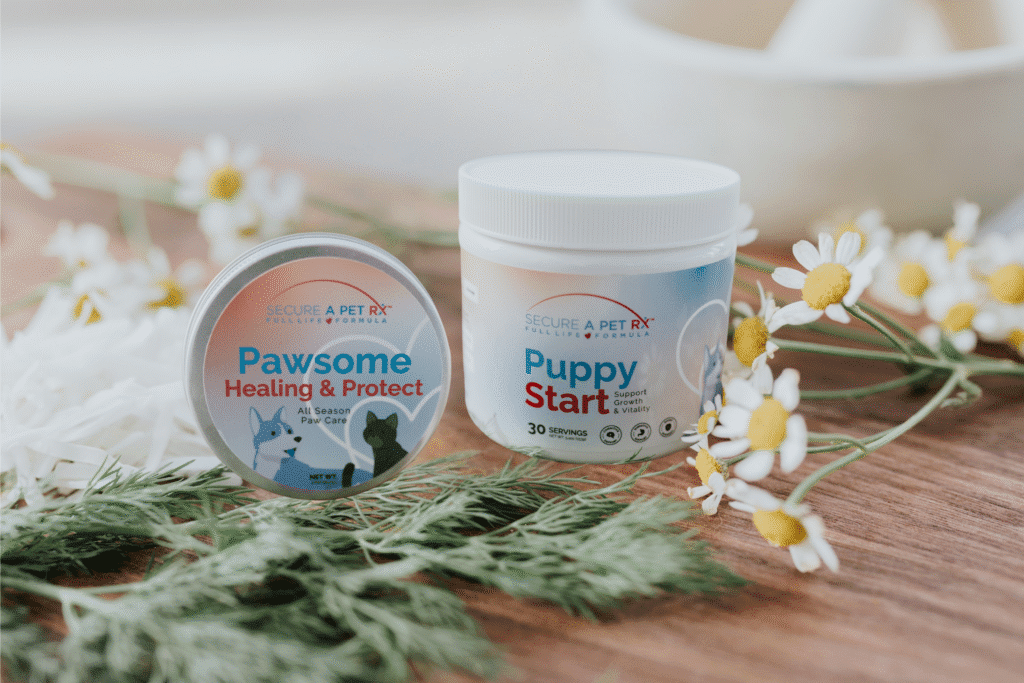Bringing a new puppy is one of life’s sweetest joys. Their tiny paws, playful energy, and endless curiosity fill your home with warmth and love. However, behind every swaying tail and happy bark, there is a need for structure, consistency, and care. Creating the culminating daily schedule is the foundation of your puppy’s long-term well-being. It not only builds strong habits but also supports overall Puppy Health, happiness, and trust between you and your furry friend.
Building a routine may sound simple, but for new pet parents, it can feel overwhelming. Questions like “When should I feed my puppy?” or “How much playtime is enough?” are common. The good news is that with love, patience, and a well-balanced schedule, you can give your pup the healthiest start possible.
Understanding the Importance of Puppy Health
A consistent routine is not just about discipline, it is about health, stability, and emotional comfort. Puppies thrive on predictability. When they know what to expect each day, they feel safe and secure, and that emotional balance helps strengthen their immune system and overall Puppy Health.
Routine also supports healthy growth, digestion, and mental stimulation. Puppies experience rapid changes in their bodies and behavior during the first year. Setting a stable routine early ensures their physical needs are met, and their emotional development stays on track.
Think of it as creating a gentle rhythm that shapes their entire life. When a puppy feels healthy, rested, and loved, they grow into a confident and happy adult dog.
1. The Right Feeding Routine for Puppy Health
Nutrition is the heart of Puppy Health. What and when you feed your puppy will shape their growth, energy levels, and immunity. Puppies require more frequent meals than adult dogs because their metabolism works faster, and their developing bodies need constant nourishment.
Start by feeding your puppy 3 – 4 small meals a day. Keep meal times consistent, morning, midday, evening, and a light dinner if needed. Always choose high-quality food that suits their age, breed, and size.
If you are wondering what to feed, look for the best food for puppy health foods that include lean proteins, vitamins, minerals, and probiotics. Avoid artificial fillers or overly processed options, as these can upset your puppy’s stomach.

You can also explore natural supplements that strengthen immunity, support digestion, and improve coat shine. For an all-in-one natural start, check out the Secure A Pet RX. It is designed to give your puppy a complete balance of nutrition and immune protection naturally.
2. The Power of Routine in Rest and Sleep
Sleep plays a major role in Puppy Health. Puppies need around 18 to 20 hours of rest per day, especially in the first few months. Rest is when their body grows, bones strengthen, and the brain processes everything they learn.
To help your puppy sleep peacefully, create a calm, cozy spot away from loud noises and bright lights. Maintain a bedtime routine that signals it is time to rest, like gentle petting, quiet time, or soft music.
Never disturb a sleeping puppy, and try to stick to the same bedtime and wake-up time each day. A well-rested puppy is happier, more alert, and less prone to behavior issues.
3. Exercise and Playtime for a Strong Body and Mind
Exercise is not only about burning energy, it is also essential for physical growth and emotional balance. Without enough play, puppies can become bored, anxious, or even destructive.
A good exercise routine enhances Puppy Health by improving cardiovascular strength, muscle tone, and joint mobility. It also supports mental development by allowing them to explore, sniff, and socialize.
Here are a few simple ideas for playtime:
- Short walks on soft surfaces
- Gentle fetch games
- Tug toys for interactive play
- Brain games like puzzle feeders or hidden treats
Just remember that puppies have delicate bones and joints, so avoid long or intense activities.
As your puppy grows, regular exercise will also prevent common puppy health problems such as obesity, weak joints, and low stamina.
4. Training and Socialization

A well-structured routine is not complete without training and socialization. Teaching your puppy basic commands like sit, stay, and come builds trust and discipline. It also makes them feel secure and confident.
Socialization, introducing them to people, sounds, and other pets, helps reduce fear and anxiety later in life. The earlier you begin, the better.
Consistency is key. Practice short, fun sessions every day and reward good behavior with praise or small treats. Training strengthens your bond and nurtures emotional health, which is an important part of Puppy Health.
5. Grooming and Hygiene
A clean puppy is a healthy puppy. Regular grooming keeps their coat, skin, and ears in good condition while preventing infections. Brush your puppy’s fur gently several times a week to remove dirt and loose hair.
Bathing should be done every few weeks or when necessary, using mild puppy shampoo. Regularly check their ears for wax or redness and trim their nails carefully.
This not only improves hygiene but also teaches your puppy to stay calm during touch and care. Grooming sessions are great bonding moments that enhance emotional security and Puppy Health overall.
6. Digestive and Gut Health
Gut health is one of the most overlooked aspects of Puppy Health, yet it affects everything from digestion and energy to immunity. Puppies with poor gut health often suffer from loose stools, bloating, or discomfort after meals.
Providing the best puppy food for gut health ensures a strong digestive system and better nutrient absorption. Include foods or supplements rich in probiotics, prebiotics, and natural fibers. These help balance healthy bacteria in the stomach and prevent future digestive problems.
If your puppy often has an upset stomach or irregular eating habits, discuss it with your veterinarian. Sometimes, small dietary changes or natural supplements can make a big difference.
7. Emotional Care and Mental Stimulation
A puppy’s emotional world is as delicate as their physical one. Boredom, loneliness, or stress can weaken their immune system over time. Emotional wellness is a major part of Puppy Health and should never be ignored.
Spend quality time every day ,play, cuddle, and talk to your puppy. Puppies understand love through your tone, body language, and consistency. Rotate their toys, teach them small tricks, and take them outdoors for new experiences.
This emotional nurturing builds confidence, prevents anxiety, and helps your puppy grow into a well-adjusted adult dog.
8. Monitoring and Preventive Care
Even with a perfect routine, regular check-ups with your vet are essential. Early detection of health concerns can prevent serious issues. Keep track of vaccinations, deworming, and diet changes.
Awareness of common puppy health problems such as diarrhea, ear infections, or skin allergies helps you respond quickly. Every puppy is unique, so their health needs may differ depending on their breed and growth pattern.
If you want professional veterinary insights, explore PetMD’s guide on puppy care, which shares reliable tips for maintaining your dog’s long-term well-being.
9. The Role of Natural Supplements in Puppy Health

While good food, love, and exercise are vital, natural supplements can fill the nutritional gaps and provide added protection. Vitamins, minerals, and herbal blends help build a resilient immune system and balanced energy.
When searching for natural products, always choose trusted brands that focus on safe, research-backed formulas. The Puppy is a gentle yet effective option designed to support Puppy Start from day one. It helps strengthen immunity, improve digestion, and promote strong bones all naturally.
Nature has a way of healing and strengthening from within. Giving your puppy the right start means giving them a lifetime of health and happiness.
10. Patience, Love, and Consistency
At the heart of every healthy puppy routine lies your love and patience. Puppies will make mistakes, they might chew the wrong thing, skip meals, or cry at night. These are natural parts of growing up.
When you respond with understanding and gentle correction, you build a relationship rooted in trust. Your care and consistency teach your puppy that they are safe and loved.
Remember, a strong Puppy Health routine is not just about meals or exercise. It is about nurturing both the body and the heart.
When to Seek Professional Help
Even with the best care, some puppies might face unique health challenges. If your puppy shows ongoing symptoms such as persistent diarrhea, fatigue, or loss of appetite, it is best to consult your vet.
Early medical support ensures small problems do not become major concerns. Your attention and quick response can save your pet from discomfort and help them recover faster.
Final Thoughts
Raising a puppy is like nurturing a child, it requires time, love, and patience. The routine you create today will shape your puppy’s life for years to come. Every small step you take, feeding balanced meals, encouraging rest, and offering playtime contributes to lasting Puppy Health and happiness.
Always remember, your puppy looks up to you for guidance and care. Their trust is pure and unconditional. Give them structure, affection, and natural support so they can live a life full of joy, energy, and love.
If you wish to give your puppy the healthiest start possible, visit the Secure A Pet RX. It is a gentle, natural way to strengthen your puppy’s immunity, digestion, and overall health because your little companion deserves the very best.
FAQs
1. How can I create a healthy daily routine for my puppy?
Keep consistent meals, play, and rest times. Include training, short walks, and bonding moments every day.
2. How often should I feed my puppy?
Most puppies need three to four small meals daily to maintain energy and healthy growth.
3. Why is routine important for Puppy Health?
Routine provides structure, reduces stress, and supports healthy development of both body and mind.
4. What natural supplements can support Puppy Health?
Supplements that contain probiotics, vitamins, and herbs can support immunity and digestion safely.
5. When should I visit a vet?
If your puppy shows signs of weakness, poor appetite, or unusual behavior, seek veterinary care immediately.





